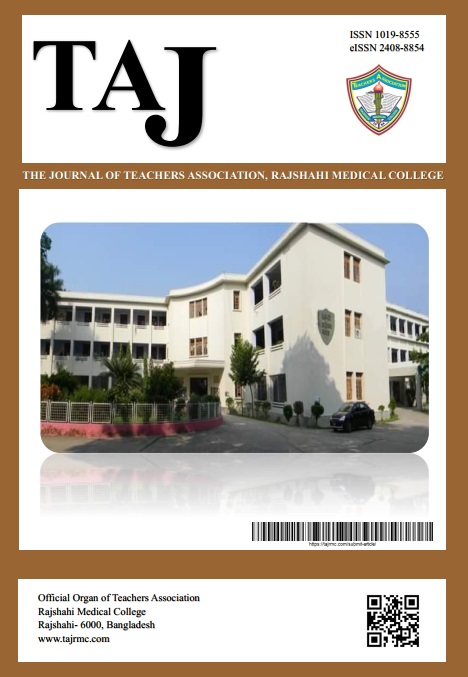| TSH Level in Pregnancy: A Comparative Study in Rajshahi City |
| Swati Sarker, Gopa Sarker, Farhana Rahman, Shahin Mahmud, Md. Jawadul Haque |
| https://doi.org/10.62469/taj.v037i02.026 |
| Pdf Download |
Background: One of the most prevalent endocrine problems in pregnant women is thyroid dysfunction which is linked to poor outcomes for both the mother and the fetus. It is obvious that overt hypothyroidism which is characterized by elevated TSH and low thyroid hormone levels in the mother, particularly in the early stages of pregnancy, may impact the development of the baby's brain or result in other pregnancy related complications. The aim of the study was to determine and compare the TSH status in pregnant and non-pregnant women in Rajshahi city. Methods: This cross-sectional comparative study was carried out in the Department of Physiology, Rajshahi Medical College, Rajshahi over a period of 1 year from July 2022 to June 2023 on 180 reproductive women aged 20-35 years in Rajshahi city. Data from 90 pregnant and 90 non-pregnant women were gathered using a pre-designed, validated and semi-structured questionnaire. Results: The mean ages of the pregnant and non-pregnant women were 25.26 ± 4.44 years and 27.66 ± 4.45 years, respectively. The mean TSH value in pregnant women was higher than non-pregnant women and it was statistically highly significant (p < 0.001). Trimester specific analysis showed that serum TSH level was increased in 3rd trimester than other trimester of pregnancy and it was statistically highly significant (p < 0.001). Conclusions: Therefore, it is imperative to check the TSH level regularly during pregnancy. Early identification of hypothyroidism may prevent difficulties and provide a good life for the unborn child and mother.

